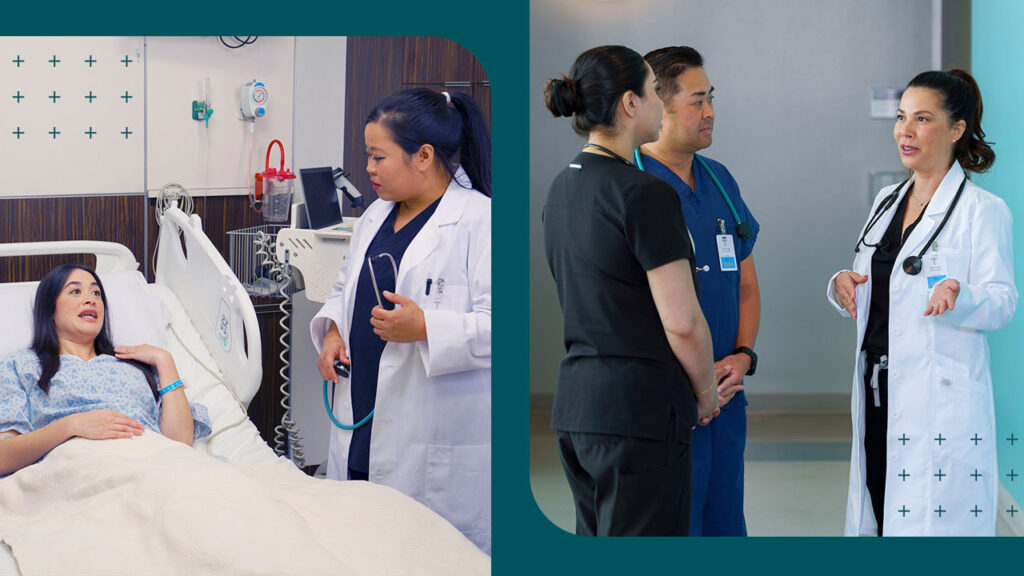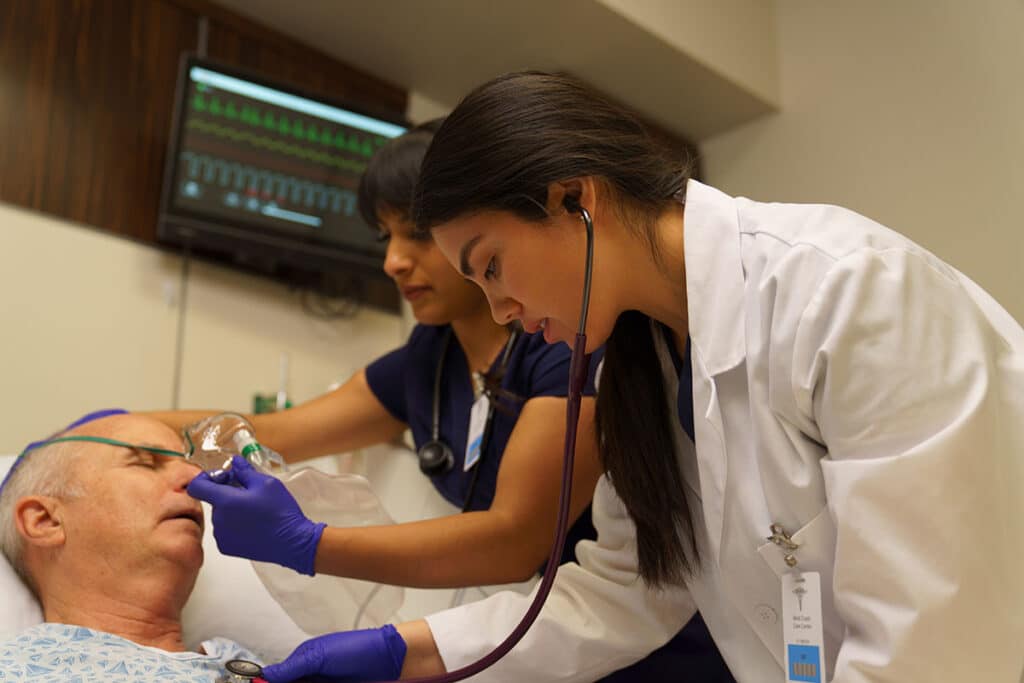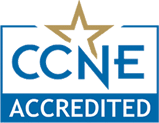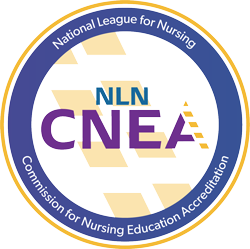Career
Nursing



8-week terms allow for start dates throughout the year
Hands-on practice during in-person immersive experiences
This APRN track is accredited by the Commission on Collegiate Nursing Education1
Prepare to work in acute or intensive care with a diverse array of doctors and patients
Get industry-current training in telehealth, special populations, and new healthcare trends
Study online with mobile-accessible learning designed for working nurses
Practice your skills on site at relevant healthcare settings

A Post-Master’s Certificate in Adult-Gerontology Acute Care Nurse Practitioner (AGACNP) can help you expand your ability to manage complex and urgent patient needs in high-acuity settings like ICUs, trauma units, and long-term care facilities.
At WCU, this certificate builds on your previous nursing education through advanced online coursework and in-person clinical experience. Complete your certificate in as few as 16 months and prepare to sit for national AGACNP certification exams.
Strengthen your clinical judgment and care strategies through focused coursework in advanced pathophysiology, pharmacology, and adult-gerontology acute care.
Designed for MSN-prepared nurses, this certificate helps you qualify for national AGACNP certification while supporting your ongoing career growth in critical care environments.
Distance Education/Online
29 Credits
16 Months
4 Trimesters
| Course Number | Course Name | Total Credit Hours |
|---|---|---|
| Number | Name | Hours |
| MSNA 600 | Adult Gerontology Acute Care: Introduction to Advanced Practice | 2 |
| MSNA 605 | Adult Gerontology Acute Care: Clinical Reasoning & Differential Diagnosis | 3 |
| MSNA 610 | Adult Gerontology Acute Care: Complex Care I | 3 |
| MSNA 610C | Adult Gerontology Acute Care: Complex Care Practicum I | 3 |
| MSNA 620 | Adult Gerontology Acute Care: Complex Care Practicum I | 3 |
| MSNA 620C | Adult Gerontology Acute Care: Complex Care Practicum II | 3 |
| MSNA 630 | Adult Gerontology Acute Care: Complex Care III | 1 |
| MSNA 630C | Adult Gerontology Acute Care: Complex Care Practicum III | 2 |
| MSNA 650 | Adult Gerontology Acute Care: Intensive I | 2 |
| MSNA 650C | Adult Gerontology Acute Care: Residency I | 2 |
| MSNA 660 | Adult Gerontology Acute Care: Intensive II | 2 |
| MSNA 660C | Adult Gerontology Acute Care: Residency II | 2 |
| MSNA 680 | Adult Gerontology Acute Care: Transition to Practice | 1 |
| Total Credit Hours: | 29.0 | |
How Much Does the Post-Master’s Adult-Gerontology Acute Care Nurse Practitioner Certificate Program Cost?
We know school is a substantial commitment. At WCU, we want to equip you with all the information you need to make the right decision for your future.
Our goal is to give you a clear understanding of post-master’s AGACNP online tuition costs so you can be well-informed as you navigate the application and enrollment process. To assist you in your decision, we provide a breakdown below of the post master’s AGACNP certificate program costs at West Coast University.
We offer several financial aid options — including scholarships, grants, and loan access — to help support you through your studies. For more information about your financial support options, visit our financial aid page.
Estimated Cost of Attendance is comprised of both direct costs and indirect costs, as outlined in the charts below. The purpose of the Cost of Attendance (COA) is to provide students and families with an estimated cost to attend West Coast University. The COA includes both direct and indirect cost estimates and are categorized as follows: (1) Direct costs are paid directly to West Coast University and are shown separately for each program; (2) Indirect costs are not paid to West Coast University and are estimates students may use to budget expenses they may incur while attending school. While actual indirect costs may vary, West Coast University estimates these amounts based on the number of months in an academic year and whether students will live with parents or off campus.
Direct Costs
| Degree Type | Certificate (Effective prior to Summer II 2025) | Certificate (Effective Summer II 2025) |
| Total Program Credits | 29 | 29 |
| Program Length (Full-Time) | 4 trimesters | 4 trimesters |
| Tuition Cost (per credit) | $785 | $810 |
| Total Tuition Cost | $22,765 | $23,490 |
| STRF1 | $0 | $0 |
| Technology Fee2 | $2,000 | $2,000 |
| Estimate for Program Supplies Fees3 | $2,300 | $2,300 |
| Program Fee (Clinical)4 | $3,300 | $3,300 |
| Estimated Total Program Costs (Texas) | $30,365 | $31,090 |
| Estimated Total Program Costs (California) | $30,365 | $31,090 |
Indirect Costs
| 8 Month Academic Year4 | ||||
| Prior to Fall I 2025 | Starting Fall I 2025 | |||
| with parents | off campus | with parents | off campus | |
| Federal Student Loan Fees | $220 | $220 | $220 | $220 |
| Living Expenses (Food & Housing) | $2,496 | $8,328 | $2,616 | $8,728 |
| Transportation | $1,728 | $1,728 | $1,776 | $1,776 |
| Personal Expenses | $5,656 | $5,656 | $5,656 | $5,656 |
| Total | $10,100 | $15,932 | $10,268 | $16,380 |
1 Effective April 1, 2024, the Student Tuition Recovery Fund (STRF) assessment rate will be zero dollars and zero cents ($0.00) per one thousand dollars ($1,000) of institutional charges.
The State of California established the Student Tuition Recovery Fund (STRF) to relieve or mitigate economic loss suffered by a student in an educational program at a qualifying institution, who is or was a California resident while enrolled, or was enrolled in a residency program, if the student enrolled in the institution, prepaid tuition, and suffered an economic loss. Unless relieved of the obligation to do so, you must pay the state-imposed assessment for the STRF, or it must be paid on your behalf, if you are a student in an educational program, who is a California resident, or are enrolled in a residency program, and prepay all or part of your tuition.
You are not eligible for protection from the STRF and you are not required to pay the STRF assessment, if you are not a California resident, or are not enrolled in a residency program.
It is important that you keep copies of your enrollment agreement, financial aid documents, receipts, or any other information that documents the amount paid to the school. Questions regarding the STRF may be directed to the Bureau for Private Postsecondary Education, 1747 N. Market Blvd. Ste 225 Sacramento, CA 95834, (916) 431-6959 or (888) 370-7589.
To be eligible for STRF, you must be a California resident or enrolled in a residency program, prepaid tuition, paid or deemed to have paid the STRF assessment, and suffered an economic loss as a result of any of the following:
To qualify for STRF reimbursement, the application must be received within four (4) years from the date of the action or event that made the student eligible for recovery from STRF.
A student whose loan is revived by a loan holder or debt collector after a period of noncollection may, at any time, file a written application for recovery from STRF for the debt that would have otherwise been eligible for recovery. If it has been more than four (4) years since the action or event that made the student eligible, the student must have filed a written application for recovery within the original four (4) year period, unless the period has been extended by another act of law.
However, no claim can be paid to any student without a social security number or a taxpayer identification number.
2Technology Fee includes student technical support, Office 365, blended and online course delivery/learning management system, mobile app, student portal technology and access, and required electronic course materials/software.
3 Supplies and licensure prep fees include a WCU identification card, background check, standardized patients, supplies, equipment for onsite intensives, and APRN predictor exams for APRN students. Supplies become student purchases once issued to students. Students who drop or have been dismissed after supplies have been issued will assume ownership for these items and will not be eligible for refunds. For details on all the supplies please contact the Student Accounts Office.
4 Program Fee covers the establishment, ongoing management, scheduling, coordination, site visits, and any other expenses related to clinical rotations.
Note: Course Audit Policy – Students auditing a course are not charged tuition or fees for the audited course. However, if a student enrolls in both an audit course and a credit-bearing course in the same semester/trimester, they will be responsible for the tuition and applicable fees associated with the credit-bearing course.
Note 2: Students who achieve a No Pass (NP) grade will retake their final courses at no additional cost or units the following term. Additionally, students who need to retake will not be impacted by the max fail policy.
Post Master Certificates (Online) Admission Requirements:
*Applicants submitting non-U.S. or non-English transcripts should refer to the International Admissions section of the catalog.
Students with nursing degrees outside of the United States will not be considered for admission into the Post-Masters Nurse Practitioner Programs [Adult-Gerontology Acute Care; Adult-Gerontology Primary Care; Family, and Psychiatric Mental Health]. However, applicants may be considered for admission into one of the WCU MSN or RN to MSN programs.
For all admission requirements, please visit our catalog.
New academic terms begin, on average, every eight weeks. The number of trimesters needed depends on the program and pace selected for the AGACNP track. For the most updated start-to-completion schedule, view the Academic Calendar.

Support Through Your Clinical Experience
At WCU, we offer the support you need for your clinical practice experience. Our Clinical Placements team is here to guide you through the process of finding and selecting a preceptor and site, as well as processing any needed approvals.
With your own assigned coordinator of clinical relations, you’ll get one-on-one coaching and learn helpful tips for a successful clinical practicum. WCU has partnerships with various healthcare providers, giving you ample resources as a student looking to find a clinical placement.
Personalized Career Guidance
We are committed to helping our students succeed post-graduation. Our Career Services department offers professional development workshops and guidance for all WCU graduates, with access to resources through graduation and beyond.2 We assist with everything from job search strategy to resume writing to interview preparation and beyond.
Additionally, prior to graduation, students have access to various resources, including Student Success advisors, admissions and financial aid advisors, personal tutoring, and more.
Our program includes clinical hours for practical experience. When it comes to finding the right facility, WCU has a dedicated team to help you find a placement for clinical training that aligns with your goals.
Our AGACNP program requires students to complete two on-site intensives (OSIs).3 These in-person, immersive experiences give students hands-on experience, as well as the opportunity to learn unique skills and collect feedback from instructors. OSIs help prepare students for APRN clinical rotations and practice.
You can earn your post-master’s AGPCNP certificate in as little as 16 months.
Yes, upon completion of your program, you will be eligible to take your national board certification exam. At WCU, we make two tools available to assist with your preparation for the examination: Lecturio and BoardVitals. These mobile-friendly platforms will help you review the test material so you feel ready once the exam date arrives.
Financial aid, scholarships, and grants are available to students who qualify. Some of the scholarships and grants that students can benefit from include the Alumni Pathway Grant (covering up to 20% of tuition), the WCU Health Services Grant (covering up to 10% of tuition), and the WCU Performance Scholarship (covering up to 15% of tuition). To learn about eligibility requirements, visit the scholarships and grants page of our online catalog.

The baccalaureate degree program in nursing, master’s degree program in nursing, Doctor of Nursing Practice program, and post-graduate APRN certificate program at West Coast University are accredited by the Commission on Collegiate Nursing Education 655 K Street, Suite 750, Washington DC 20001, (202) 877-6791 (www.ccneaccreditation.org).

The West Coast University Post-graduate Certificate in Nursing program holds initial accreditation from the National League for Nursing Commission for Nursing Education Accreditation (NLN CNEA), located at 2600 Virginia Avenue, NW, Washington, DC 20037.
Financial aid and scholarships are available for those who qualify
WCU Distance education programs are delivered out of the California and Texas campuses and may not be available to residents in all states.
Practice Experience is required in order to graduate from the RN to BSN, RN to MSN, MSN, DNP degree and Post-Master’s certificate programs.
1 The baccalaureate degree program in nursing, master’s degree program in nursing, Doctor of Nursing Practice program, and post-graduate APRN certificate program at West Coast University are accredited by the Commission on Collegiate Nursing Education 655 K Street, Suite 750, Washington DC 20001, (202) 877-6791 (www.ccneaccreditation.org).
2 WCU provides career guidance and assistance but cannot guarantee employment.
3 American Association of Nurse Practitioners, “Are You Considering a Career as an Adult-Gerontology Acute Care Nurse Practitioner?”